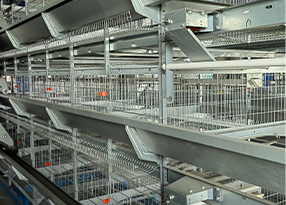Portable chicken transport cage for safe and comfortable travel of your poultry
Nov . 07, 2024 16:20 Back to list
Portable chicken transport cage for safe and comfortable travel of your poultry
The Importance of Chicken Carrier Cages in Poultry Management
In the realm of poultry management, the welfare of chickens plays a crucial role in ensuring their health, productivity, and overall quality of life. One significant element of this management is the use of chicken carrier cages. These specialized cages serve various purposes, from facilitating transport to providing a safe and comfortable environment for birds. Understanding their importance and design can help poultry farmers maximize both efficiency and animal welfare in their operations.
Design and Functionality
Chicken carrier cages are specifically designed to accommodate the unique needs of poultry during transit. The cages are typically constructed from durable materials like galvanized steel or high-quality plastic, allowing them to withstand the rigors of transportation. The design prioritizes ventilation, which is essential for keeping the chickens comfortable and preventing overheating. Good ventilation also helps reduce the spread of airborne diseases, an important factor in maintaining flock health.
Additionally, these cages come in various sizes and configurations to suit different breeds and numbers of chickens. Some carrier designs incorporate slanted floors to facilitate drainage and clean-up, minimizing waste and odors during transport. Furthermore, many modern chicken carrier cages include features like secure locking mechanisms that prevent escape and reduce stress on the birds during transit.
Transporting Chickens with Care
Transporting chickens is often necessary for various reasons, including market sales, veterinary care, or relocation to different housing facilities. However, improper transport can lead to stress and injury among the birds. Chicken carrier cages help mitigate these risks by providing a secure and comfortable space for the chickens. In many countries, regulations mandate the use of such cages to ensure the humane treatment of poultry during transport.
When transporting chickens, it's essential to adhere to guidelines regarding the number of birds per cage. Overcrowding can cause stress, injuries, and even fatalities. Poultry farmers must be aware of the weight limitations and space requirements to ensure each bird has enough room to stand, turn, and lie down comfortably.
chicken carrier cage

Enhancing Poultry Welfare
The welfare of chickens is a growing concern among consumers and animal rights organizations. The use of chicken carrier cages embodies a commitment to improving animal welfare by minimizing stress during transport. When chickens are transported in well-ventilated, spacious cages, they experience lower cortisol levels, which is a key hormone associated with stress. Lower stress levels contribute to healthier birds, which, in turn, can lead to better egg production and meat quality.
Moreover, responsible poultry management involves not only caring for chickens during transport but also ensuring that they are properly acclimated to their new environments after transportation. Utilizing chicken carrier cages allows for a smoother transition, as these cages can be used in conjunction with larger housing systems, providing a familiar environment for the chickens upon arrival.
Economic Implications
From an economic perspective, the use of chicken carrier cages can lead to cost savings for poultry farmers. Healthy, less-stressed birds are generally more productive, yielding higher-quality products, whether it be meat or eggs. Reducing bird mortality during transport by using appropriate cages also ensures that farmers maximize their investment in their flocks.
Additionally, as public awareness of animal welfare issues continues to rise, consumers are increasingly seeking ethically raised poultry products. Farmers that utilize well-designed chicken carrier cages can better market their products by demonstrating their commitment to humane practices, potentially commanding higher prices in the marketplace.
Conclusion
In conclusion, chicken carrier cages play a vital role in the poultry industry. They not only facilitate the safe and humane transport of chickens but also contribute to the overall welfare of the birds throughout their lifecycle. By investing in high-quality carrier cages, poultry farmers can enhance the health and productivity of their flocks, achieving greater economic success while adhering to ethical standards. As the industry continues to evolve, the importance of chicken carrier cages will likely grow, reflecting society's growing commitment to animal welfare and sustainable farming practices.
-
Automatic Feeding Line System - Anping County Yize Metal Products Co., Ltd.|Pan Feeder, Nipple Drinker
NewsJul.30,2025
-
Automatic Feeding Line System-Poultry Farming|Chicken Feeding&Watering
NewsJul.30,2025
-
Automatic Feeding Line System - Anping County Yize Metal Products Co., Ltd.|Pan Feeder Nipple Drinker,Broiler Farming
NewsJul.30,2025
-
Automatic Feeding Line System Pan Feeder Nipple Drinker-Anping County Yize Metal Products Co., Ltd.
NewsJul.30,2025
-
Automatic Feeding Line System-Anping County Yize Metal Products Co., Ltd.|Durable Construction&Easy Maintenance
NewsJul.30,2025
-
Automatic Feeding Line System-Anping County Yize Metal Products Co., Ltd.|Pan Feeder Nipple Drinker&Durable Poultry Farming Solution
NewsJul.30,2025






